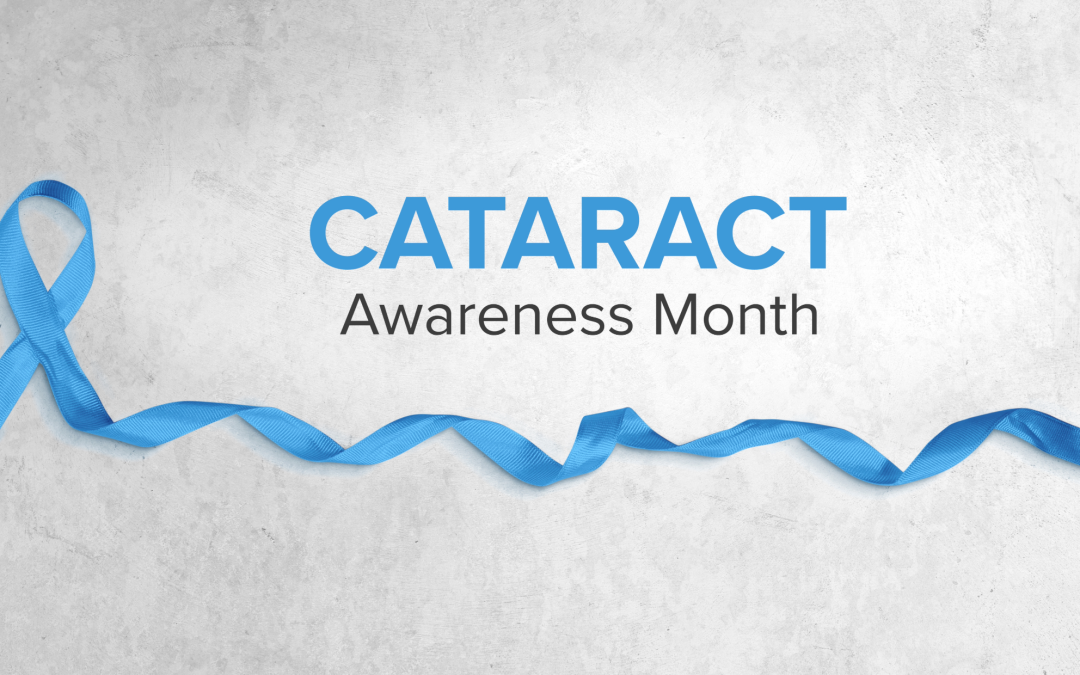Clearer Vision Ahead: Cataract Prevention, Treatment, and How We Can Help
Cataracts are one of the leading causes of vision impairment worldwide, particularly in older adults. While the condition is common, it does not have to lead to significant vision loss if detected early and treated appropriately. June’s Cataract Awareness Month provides the perfect opportunity to learn about cataracts, their prevention, and how insurance can play a crucial role in ensuring timely treatment.
What Are Cataracts?
Cataracts occur when the clear lens of your eye becomes cloudy, leading to blurry or impaired vision. Common symptoms include:
- Blurry or dim vision
- Sensitivity to light
- Difficulty seeing at night
- Fading or yellowing of colors
- Double vision in one eye
While cataracts can develop at any age, they are most often linked to aging. Other contributing factors include prolonged exposure to UV rays, diabetes, smoking, and certain medications.
Prevention and Early Detection
While not all cataracts are preventable, there are steps you can take to reduce your risk:
- Wear Sunglasses: Protect your eyes from harmful UV rays by wearing sunglasses with 100% UV protection.
- Maintain a Healthy Diet: Foods rich in antioxidants, such as leafy greens and fruits, can support eye health.
- Quit Smoking: Smoking increases the risk of cataract development.
- Manage Chronic Conditions: Keep diabetes and other health conditions under control.
- Regular Eye Exams: Routine eye exams can help detect cataracts early, allowing for timely treatment.
Insurance Coverage for Cataract Prevention and Treatment
Eye health is an essential component of overall well-being, and insurance can help cover the costs associated with cataract prevention and treatment. Here is how:
- Preventive Care: Many insurance plans cover routine eye exams, which are essential for early detection of cataracts and other eye conditions.
- Treatment: If cataract surgery is needed, it is generally covered by health insurance, including Medicare and many private plans. Coverage typically includes the cost of the procedure, intraocular lenses (IOLs), and follow-up care.
- Prescription Glasses or Contacts: After surgery, some plans may cover part of the cost for glasses or contacts needed to correct vision.
How We Can Help
Navigating insurance options for eye care can be overwhelming, but that’s where Hartman Insurance Services steps in. Here is how we can assist you:
Policy Review: We will help you understand your current health insurance coverage and identify gaps related to eye care and cataract treatment.
Plan Selection: If your existing plan does not meet your needs, we will guide you in selecting a policy that covers preventive care, surgeries, and post-treatment necessities.
Medicare Assistance: For those eligible for Medicare, we will explain how Part B and supplemental plans can minimize out-of-pocket expenses for cataract treatment.
Expert Guidance: Our team simplifies the insurance process, ensuring you are equipped to make informed decisions about your health.
Take the First Step Today
Cataracts may be a common condition, but with early detection and the right insurance coverage, they do not have to disrupt your quality of life. We are committed to helping you access the care you need. Contact us today to review your insurance options and take a proactive step toward protecting your vision.
Remember, your eyes are your windows to the world—let us help you keep them healthy and bright!

